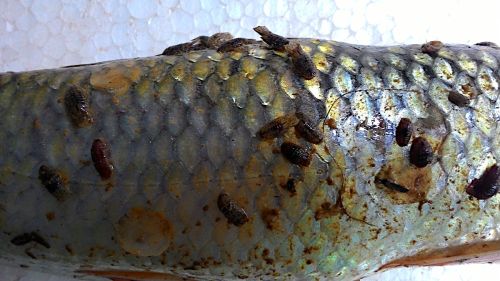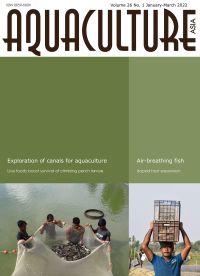Expansion of host range of isopod Tachaea spongillicola infestation to fish species could pose a threat to aquaculture
4 March 2022 | 997 Downloads | .pdf | 895.99 KB | Freshwater finfish, Health and Biosecurity, India
Climate change and expansion of parasites to new host species is a major concern, but in aquaculture this is not well understood. Our article in the journal Aquaculture highlighted the first record of the isopod Tachaea spongillicola infesting wild fish species of aquaculture importance, particularly of carps. T. spongillicola was first recorded in freshwater sponges, 114 years back, and later recorded (2003) infesting freshwater prawn as a new host. Our 2021 study further recorded infestation of this isopod in wild fish species. The expansion of host range from freshwater sponges to freshwater prawns and now to freshwater fish species could pose a risk to aquatic industries in the years to come. Here, we hypothesise that climate change could be a major factor contributing towards the expansion of parasites to new hosts through reduced water flows globally. A deeper investigation is warranted towards sustainable aquaculture food production in south and southeast Asian countries.
Creative Commons Attribution.

